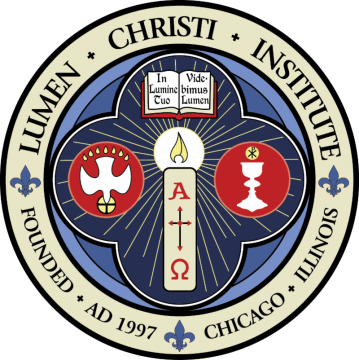Interview with Dominic Chiu, Third-Year Economics and Philosophy Undergraduate


“The Institute is a crucial provider of Catholic intellectual resources at a secular campus like the University of Chicago. Its capability to invite prominent intellectuals and religious figures from across traditions to its events is remarkable, and it continues to draw the attention and respect of religious and non-religious academics alike.”
What is your area of study and what is the focus of your current research?
I am a Third-Year Economics and Philosophy undergraduate from Hong Kong, China. I am interested in behavioral economics, specifically on the analyses of decision-making. In philosophy, I focus on reading Aristotelian ethics and dabbling in action theory. I am also interested in comparing Catholic ethics and metaphysics with that of Chinese philosophy and religions.
How did you first hear about Lumen Christi? Which event did you first attend, and why?
When I first arrived at the University of Chicago, I soon heard about the Lumen Christi Institute through Calvert House, the Catholic student center at the University. I attended my first Lumen Christi event on the poetry and religious identity of Shakespeare, a lecture by John Finnis. I was drawn to the event primarily because of my interest in the lecturer, who is an internationally well-known expert in Thomism and natural law.
How has your participation in Institute lectures, conferences, and seminars contributed to your growth as a scholar?
One of the best ways Lumen Christi events have contributed to my scholarship is that they provide a view of all professional subjects from a perspective both internal and external to the subjects themselves. Internal, because the lecturers are themselves professionals in the fields of economics, theology, literature, and the natural sciences; external, because unlike the college which professes topics from a technically-minded view, Lumen Christi lectures reconcile subjects from across the academic spectrum. More importantly, it infuses the spirit of Catholic scholarship in its discussions and lectures, always providing viewpoints of the faith from the contributions of its student attendants and its guest speakers.
Is there a particular event (or encounter with a scholar) that has directly impacted the development of your academic work?
The annual programs on Economics and Catholic Social Thought is a great example of the reconciliation of subjects I have mentioned. Never too technical in its content, the programs’ inclusion of Catholic and non-Catholic economists on the panels allows for a genuine sharing of ideas among different beliefs in a science otherwise left to only the technocrats. At a university which takes pride in its economics’ program, Lumen Christi’s economics conference provides a crucial discussion on the much needed presence and development of a moral economy.
What do you plan to do after you have completed your degree from the University of Chicago?
I preliminarily plan to either enter investment banking as an analyst or work in corporate finance at an insurance company after graduation. I am also considering the continuation of my academic pursuits at think tanks or working in the civil service of the Hong Kong Government.
Please comment on the role you think the Institute plays on the University of Chicago campus.
The Institute is a crucial provider of Catholic intellectual resources at a secular campus like the University of Chicago. Its capability to invite prominent intellectuals and religious figures from across traditions to its events is remarkable, and it continues to draw the attention and respect of religious and non-religious academics alike. The University of Chicago needs Lumen Christi to continue to fuel the needs of Catholic students who are searching for an enriching, faith-based student life in their everyday work; it also answers the many concerns non-Catholic students might have on the Church and its relationship with the many facets of modern life in and outside of campus.